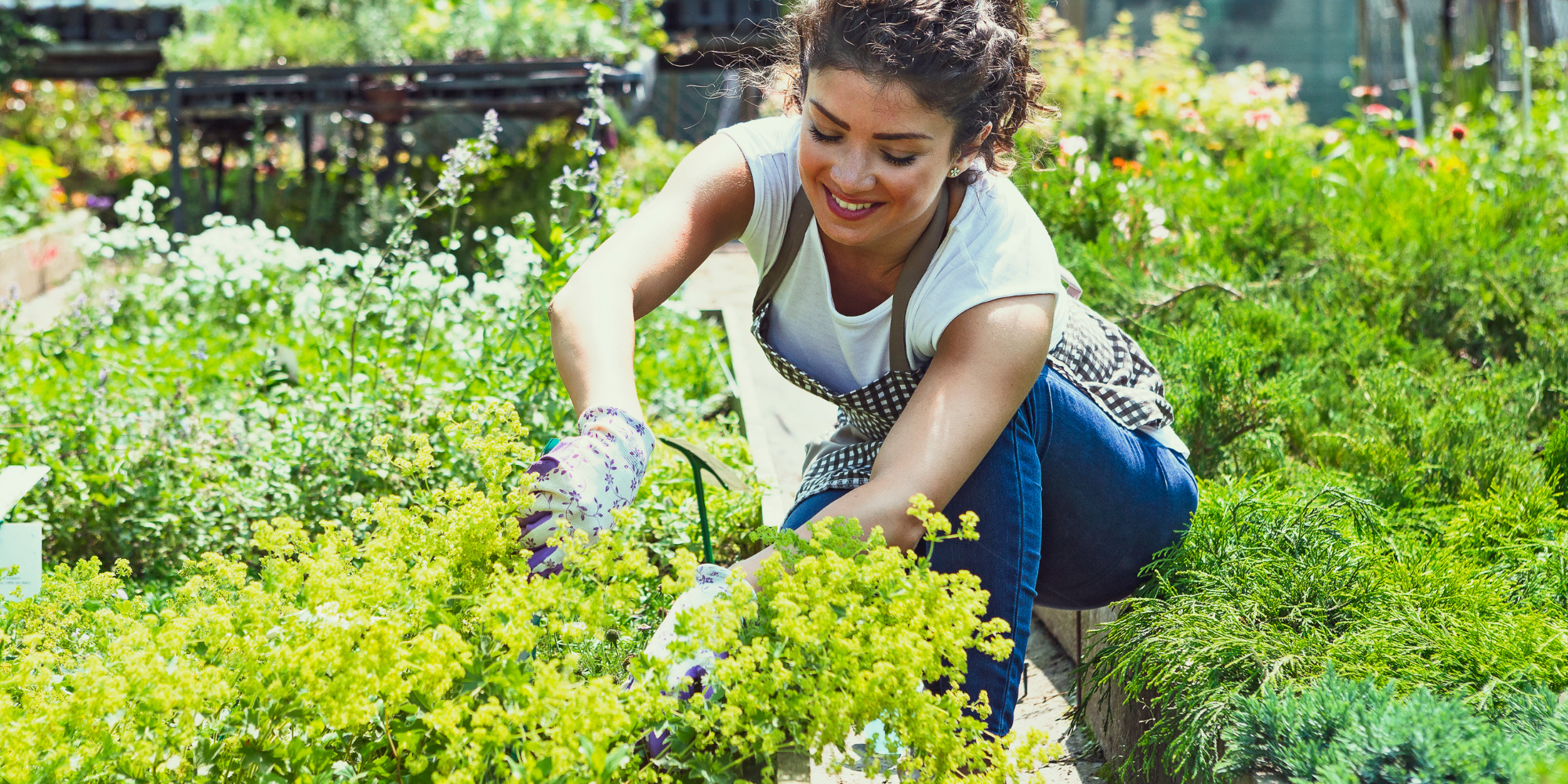If you are a first-time homeowner, or you have never tried to garden before, take the opportunity this Spring to get into gardening for the first time! Not only is gardening super fun and great exercise, but it is also extremely rewarding to be able to grow your own fresh vegetables to cook with!
If you are interested in starting your own garden but you are not sure where to start, check out some tips on how you can easily turn your backyard into an abundant oasis:

1 – Find the best spot in your yard.
First, figure out where it makes the most sense to have your garden in your yard. For any vegetables that you plan on growing, as well as any flowers, be sure to take into consideration that they need an adequate amount of sunlight each day, so you want to ensure that the area you choose to plant has access to that sun.
If you have areas of your yard that are hillier than others, also take into consideration that gardens have much more success growing on flat land.
2 – Figure out what it is that you want to plant.
Next, assess what it is that you want to plant and grow. There are so many different options when it comes to a garden, so by knowing your specific climate zone, how much space you have in your backyard, as well as what your preferences and goals are, you will be able to narrow down what makes the most sense to grow.
For example, are you looking to just grow some of your favorite flowers? Focus solely on vegetables? Or perhaps you are looking to grow your own herbs. Whether it is one or all of those different options, knowing what you are looking for will help you to plan properly.
3 – Buy all the basic gardening tools.
Of course, you cannot successfully grow and maintain a garden without all the proper gardening tools. If you do not already have any gardening tools on hand, be sure to do your research to figure out exactly what it is that you will need.
For more basic gardens, to start you will need a good shovel, a pair of gloves, a scoop for your potting soil, and a sharp knife. There are some other tools that may be required as well, including hand pruners, a cordless drill, or a saw. Also, be sure that you are wearing the proper apparel and avoiding anywhere that there may be poison ivy.
4 – Clear the garden area.
Now, it’s time to get down to business! Take some time to fully clear out the area where you will be planting your garden, getting rid of any weeds that you see as well as any other debris. It will be important that you remove all of this before you begin to plant anything.
5 – Test your soil.
The next task at hand is testing your soil. This is so that you can learn more about your soil and see what it is possibly lacking that will prevent you from having a successful garden. You will be able to find out key information such as your soil’s nutrient levels as well as how compacted it is. Then, you may need to add some compost to the soil when you are digging it.
6 – Prepare the beds for planting.
Once your soil is all set and your compost is laid down, prepare your beds and ensure that they are not bigger than 4 feet wide, so you can easily reach into the center of each bed without having to step on the soil and compost, which would compact it and ultimately hurt your plant beds.
7 – Plant your seeds.
When it comes to planting your seeds, ensure that you are sowing at the proper depth and that you are spacing out the seeds appropriately. Remember that you must water all new seeds very gently while ensuring that they are not under or over watered. Generally speaking, you can tell if a plant needs more water by sticking your finger about two inches into the soil to feel how dry it is.
8 – Protect the garden with mulch.
Your garden can be protected by covering the soil with mulch, which will help to keep any weeds out while also keeping as much moisture as possible in. By adding mulch to your garden, you will not have to water as often. There are a bunch of different types of mulches depending on the specific benefits that you are looking for.
Find homes with beautiful gardens in Massachusetts Homes – Dartmouth.
